Master the Core Concepts of Neuroradiology with Expert Guidance!
As Recommneded By
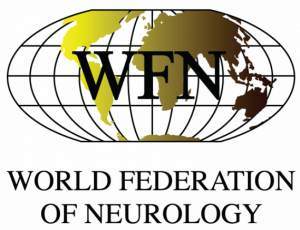


Your Journey to Becoming a Neuroradiology Expert
Embark on a transformative learning experience designed to turn your passion for neurology into expertise. Whether you are a student, a practicing professional, or someone seeking to deepen your knowledge, this journey equips you with the tools and confidence to excel.
Enroll in the course and gain instant access to materials
Learn foundational and advanced neuroradiology topics through engaging video modules.
Apply your knowledge in clinical practice with confidence and precision
Comprehensive Neuroradiology: Advances in Practice provides a thoughtful discussion of a wide spectrum of brain, head, neck and spine imaging topics. Penn Radiology’s globally acclaimed faculty focuses on pattern recognition and interpretation of neuroimaging findings, which will result in more succinct differential diagnoses. A host of didactic and case based presentations will detail the impact of modality advances, with additional emphasis placed on neurovascular and degenerative disease.
Why This Course is Right for You:
- Build a strong foundation in neuroradiology—perfect for radiologists, neurologists, and related specialists.
- Gain insights from case-based presentations, enhancing your diagnostic and clinical skills.
- Stay updated with the latest modality advances, designed for busy professionals.
What You Will Learn from This Course
The Penn Radiology Comprehensive Neuroradiology: Advances in Practice 2024 course equips you with essential skills and advanced knowledge in neuroradiology, including:
In-Depth Understanding of Neuroimaging:
- Master the fundamentals and advanced principles of brain, head, neck, and spine imaging.
- Explore neurovascular imaging, spinal lesions, and degenerative disorders with precision.
Expertise in Diagnosing Neurological Conditions:
- Learn to interpret imaging for intra-axial and extra-axial brain tumors, malignant gliomas, and toxic encephalopathies.
- Gain skills in identifying and diagnosing spinal and neurovascular lesions, neurodegenerative disorders, and brain infections.
Cutting-Edge Imaging Techniques:
- Understand modality advancements such as arterial spin labeling (ASL) and MR spectroscopy.
- Utilize advanced imaging tools for better patient outcomes and accurate diagnoses.
Case-Based Learning and Peer Insights:
- Engage with real-world cases to sharpen diagnostic accuracy.
- Learn from common interpretative errors and enhance your skills in imaging pattern recognition.
Practical Application in Clinical Settings:
- Apply neuroimaging techniques in the diagnosis and management of conditions like strokes, TMJ, laryngeal cancer, and sellar/parasellar pathologies.
- Enhance collaboration with neurology, oncology, and surgical teams through precise imaging reports.
This course provides a comprehensive foundation for radiologists, neuroradiologists, fellows, residents, and other medical professionals seeking to excel in interpreting and applying neuroimaging findings.
Topics Covered in the Course
The Penn Radiology Comprehensive Neuroradiology: Advances in Practice 2024 course offers an extensive range of topics designed to enhance your expertise in neuroradiology. Key areas include:
Brain Imaging
- Intra-Axial Brain Tumors: Algorithmic approaches to diagnosis.
- Extra-Axial and Intraventricular Brain Tumors: Imaging and interpretation techniques.
- Malignant Gliomas: Advanced imaging and treatment insights.
- Brain Infection and Inflammation: Diagnostic imaging approaches.
- Toxic Encephalopathies: Neuroimaging in substance-related brain damage.
- Arterial Spin Labeling (ASL): Techniques and applications in clinical practice.
Head and Neck Imaging
- Imaging Proptosis: Focused on neoplasia.
- TMJ Imaging: Techniques for diagnosing temporomandibular joint conditions.
- Laryngeal Cancer: Patterns of tumor spread and imaging methods.
- Sellar and Parasellar Pathology: Pearls and pitfalls for clinicians.
- Robotic Surgery in Head and Neck Cancer: What radiologists need to know.
- EBV-Associated Tumors: Imaging nasopharyngeal cancer and lymphoma.
- Blind Spots in Head and Neck Imaging: Recognizing commonly missed findings.
Spine Imaging
- Spinal Lesions: Intramedullary, extramedullary, and intradural pathologies.
- Spinal Inflammation and Infection: Imaging techniques and case studies.
- Vascular Lesions of the Spine: Identification and management.
Neurodegenerative Disorders and Artifacts
- Common MRI Artifacts in Neuroimaging: How to identify and manage.
- Neurodegenerative Disorders in Adults: Imaging insights and patterns.
- Great Calls in Neuroradiology: Practical case studies and diagnostic challenges.
- The Seven Habits of Highly Effective Neuroradiologists: Strategies for excellence.
Neurovascular Imaging
- Neurovascular Imaging: Advanced techniques and applications.
- Imaging in the Emergency Department: When and when not to use MRA, CTA, and DSA.
- Peer-Learning in Neurovascular Imaging: Avoiding common interpretive errors.
Advanced Brain Imaging Techniques
- Using MR Spectroscopy: Its role in treating malignant gliomas.
- The ABCs of Arterial Spin Labeling (ASL): Basics and clinical applications.
- Neuroimaging of Toxic Encephalopathies: Your brain on drugs.
This comprehensive curriculum ensures that you gain both foundational knowledge and cutting-edge skills in neuroradiology.
Who can learn from this course?
The Penn Radiology Comprehensive Neuroradiology: Advances in Practice 2024 course is tailored for medical professionals and specialists who want to deepen their understanding and refine their skills in neuroradiology. This includes:
Radiologists
- Those in academic or private practice looking to expand their expertise in brain, head, neck, and spine imaging.
Neuroradiologists
- Professionals focused on advanced imaging techniques and interpretation for neurovascular and degenerative diseases.
Head and Neck Radiologists
- Radiologists specializing in diagnosing conditions of the head and neck.
Radiology Fellows and Residents
- Learners in training who seek comprehensive, case-based knowledge in neuroradiology.
Oncologists
- Cancer specialists who benefit from detailed imaging insights for brain and head-and-neck tumors.
Neurologists
- Clinicians wanting to enhance their diagnostic capabilities using advanced neuroimaging.
Surgeons
- Neurosurgeons and head-and-neck surgeons who rely on precise imaging for treatment planning.
Radiology Technologists
- Professionals aiming to improve their understanding of neuroimaging findings and modalities.
Medical Educators and Researchers
- Those teaching or studying innovations in neuroradiology for clinical or academic purposes.
This course is designed to support a broad range of medical professionals who rely on neuroimaging to deliver exceptional patient care.
What Others Are Saying
This symposium was like a masterclass in cognitive aging. The presentations were current, clinically relevant, and rooted in evidence. I found the overview of apraxia especially helpful, as well as the nuanced breakdown of dementia subtypes. It was refreshing to see sessions that went beyond just Alzheimer’s and addressed other conditions like Lewy Body Dementia. I also appreciated the attention to prevention — not just treatment. The sections on exercise, nutrition, and community influence offered strategies I can actually discuss with patients and caregivers. This is one of the most well-rounded courses I’ve taken on brain health in older adults. Highly recommended for anyone in geriatric medicine or neurology.
This course was a breath of fresh air. As a nurse in a memory care facility, I’m always seeking to better understand the diseases my patients live with every day. The session on Lewy Body Dementia was particularly valuable — it's a condition we see often but isn’t widely understood. The instructors did an amazing job of explaining the differences between various types of dementia and how to recognize signs early. I also loved the section on promoting cognitive health through social engagement and community design — something we can actually apply in our care center. I came away with new insights and renewed motivation to provide the best care possible.
As a psychologist working with older adults, I often collaborate with neurologists and primary care providers. This course deepened my understanding of the biological processes behind cognitive aging and dementia in a way that enhances my therapeutic approach. The discussion on cognitive reserve and how lifestyle, social interaction, and education affect brain resilience really hit home for me. I also found the session on racial disparities and social determinants to be crucial. It’s rare to find a course that integrates neuroscience, psychology, and public health so seamlessly. I now feel better equipped to contribute to multidisciplinary teams and advocate for holistic treatment plans.
This course gave me exactly what I needed — an updated, practical understanding of dementia and Alzheimer’s management. Working in geriatric care means I deal with cognitive decline on a daily basis, and this content helped me understand not only the science but also the broader picture. I now feel more confident explaining biomarker testing to families and discussing therapeutic options, both pharmacological and lifestyle-based. The sessions were well-paced, the experts engaging, and the content highly relevant. I’ve already recommended this to my colleagues. For any PA or NP in elder care, this course is worth every minute.
As a practicing neurologist for over 12 years, I’m always on the lookout for continuing education that actually adds value to my clinical work — and this course absolutely delivered. The sessions on blood-based biomarkers and cognitive reserve were groundbreaking. I appreciated how the presenters balanced cutting-edge research with clinical applicability. It wasn’t just academic jargon — they actually discussed how to interpret and implement these insights in real-world practice. I found the segment on social determinants of brain health especially eye-opening and have already started incorporating some of these considerations into my patient assessments. This course gave me new tools, a deeper understanding of cognitive aging, and a better framework for discussing treatment options with families. I highly recommend this to any neurologist who wants to stay ahead of the curve.
Don't Miss This Limited-Time Offer
BIG SALE
Get instant access for a special price-
7 Modules
-
Full HD Videos
-
Lifetime Access
-
Save $655
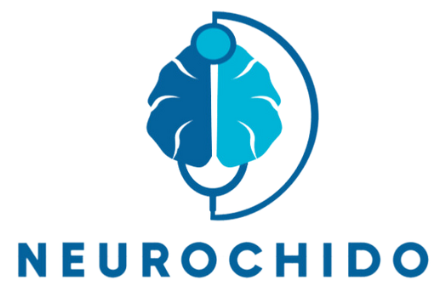
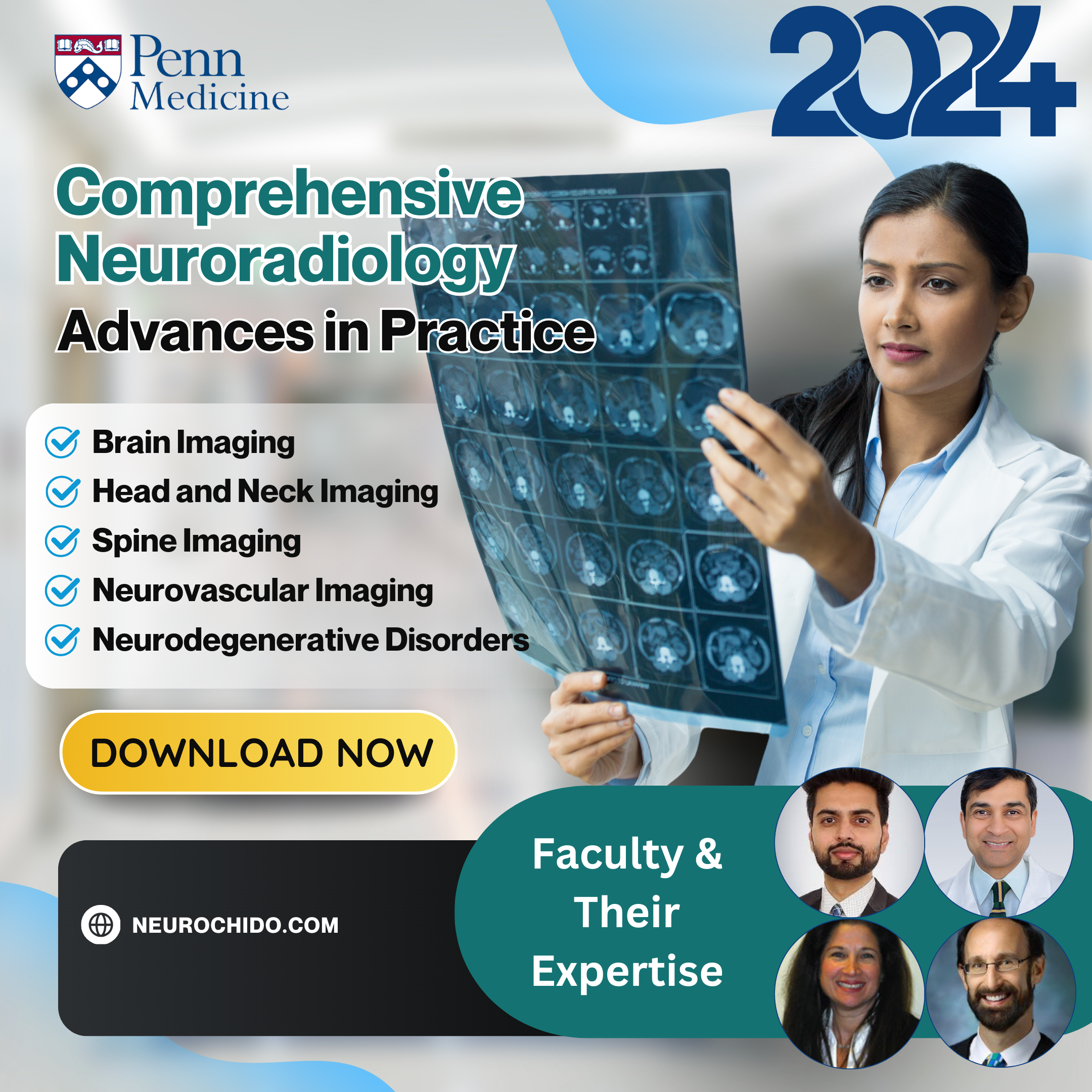
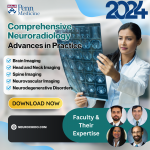
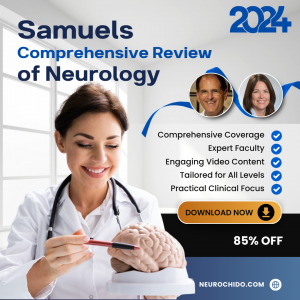

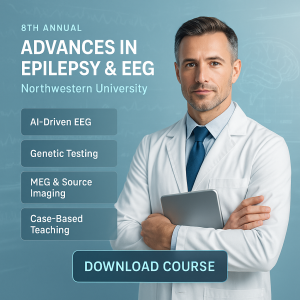
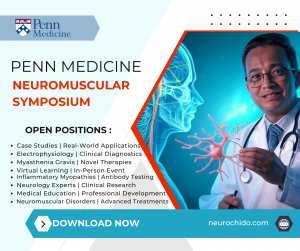
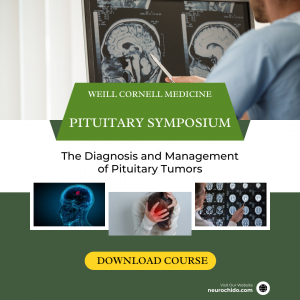
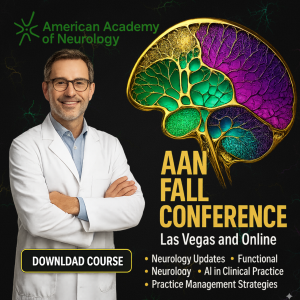
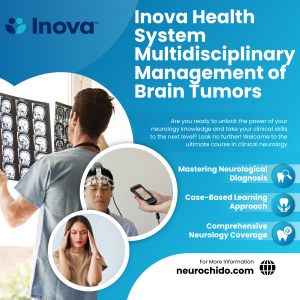
23 reviews for Meetings By Mail Penn Radiology Comprehensive Neuroradiology Advances in Practice 2024